The following passage is the conclusion from Wendell Berry’s book “Life Is A Miracle”. I have been reading and re-reading this book for Lent and it has been a rich read. His education and writing skills have caused me to commit the sin of envy, fodder for my Lenten reflections. His words applied to my religious experience remind me how difficult it is to pass on what it is I know, what I have felt, what I have lived in my life with God. It is both judgement and hope for our future as children of God.
In speaking of the reductionism of modern science, we should not forget that the primary reductionism is in the assumption that human experience or human meaning can be adequately represented in any human language. This assumption is false.
To show what I mean, I will give the example that is most immediate to my mind:
My grandson, who is four years old, is now following his father and me over some of the same countryside that I followed my grandfather and father over. When his time comes, my grandson will choose as he must, but so far, all of us have been farmers. I know from my grandfather that when he was a child he too followed his father in this way, hearing and seeing, not knowing yet that the most essential part of his education had begun.
And so in this familiar spectacle of a small boy tagging along behind his father across the fields, we are a part of a long procession, five generations of which I have seen, issuing out of generations lost to memory, going back for all I know, across previous landscapes and the whole history of farming.
Modern humans tend to believe that whatever is known can be recorded in books or on tapes or computer discs and then learned again by those artificial means.
But it is increasingly plain to me that the meaning, the cultural significance, even the practical value, of this sort of family procession across a landscape can be known but not told. These things, though they have a public value, do not have a public meaning; they are too specific to a particular small place and its history. This is exactly the tragedy in the modern displacement of people and cultures.
My father, his father and his grandfathers before that were farmers in Georgia. My mother’s father and her grandfathers were farmers in Virginia. They each carry in their memories farming skills peculiar to their own geographical location at birth. Mother’s memories as she tagged along side her daddy, riding the plow horse as the fields were plowed, neighbors gathering to harvest the ice pond in the winter, the truck that came each week to the farm with fresh fish from the Chesapeake Bay, growing wheat to grind for your flour supply so bread could be baked... Her memories are so different from my daddy’s.
Daddy tended cows that were set free to roam the woods and fields each morning. It was his responsibility to gather them up in the evening. Growing tobacco, cotton and corn was hard work and all the children were field hands. Cornbread and biscuits, cane syrup, meat butchered in the backyard and smoked in the smokehouse, mules that provided the power needed to plow and harvest the crops... farming of a different sort from my mother’s experience.
I have heard these stories all my life and they are a treasure. And yet, hearing the stories does not teach me how to butcher a yearling, how to grow a healthy pasture, how to harvest ice, or how to plow with a horse or mule. Even growing up on my parent’s farm, I never lived what they lived, never felt the cycle of the seasons in quite the same way, felt the back breaking work necessary for survival, or had the same pleasures of swimming in the creek, watching the deer eat the windblows in the apple orchard in the early morning, eating the canned pork tenderloin that lives in my mother’s memory as one of the best tasting foods of her childhood.
And so it is with my faith experience. I can tell the stories of my mother growing up in the oldest Baptist church in Virginia, my growing up Baptist in a small country church in Georgia, being a part of a succession of Baptist churches all my adult life until my denomination self-destructed, leaving my faith home place and traveling to the strange land of a new denomination. These stories have a public meaning as Berry says but the private meaning, the particular meaning is impossible for me to capture in words alone.
Lent is a part of a faith experience that is public and particular at the same time. Its history is rooted in our beginnings with the meaning of many of its traditions lost in the telling of the stories. Knowledge captured in words written and spoken sheds a light on our path as we make this inward journey. Telling what we know, what we feel, what we have experienced is the only way we can hold on to the procession of the faithful through the centuries before us, all the grandfathers and grandmothers who walked before us on the Christian path to God.
Like the farmer in the parable of the barren fig tree, I have another year to dig and fertilize my soul during this particular season. So I practice Lent, walking in the fields of Christian experience, continuing my education, hearing and seeing and beginning to know some of what I need to know to be a competent Christian. And I write of this knowing words are a poor vehicle for the expression of my experience but it is the best I can do. And in the writing I become a part of “the living procession through time in a place that is the record by which such knowledge survives and is conveyed. When the procession ends, so does the knowledge.” May it never end.
Subscribe to:
Post Comments (Atom)

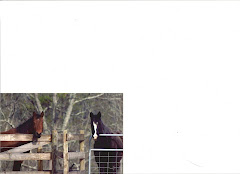
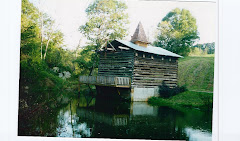


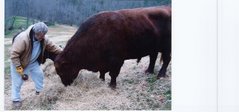
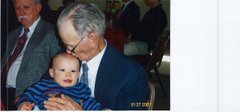
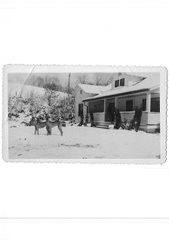
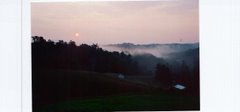
No comments:
Post a Comment